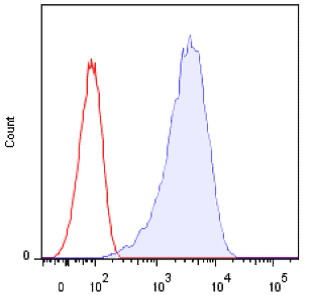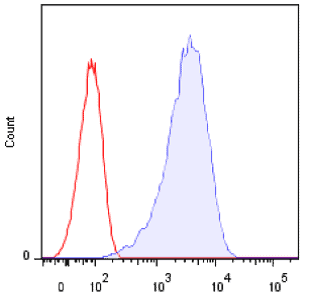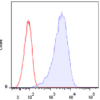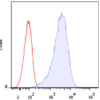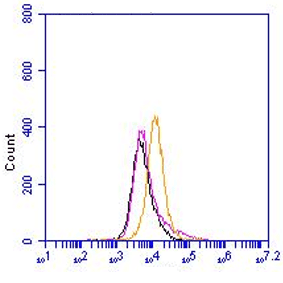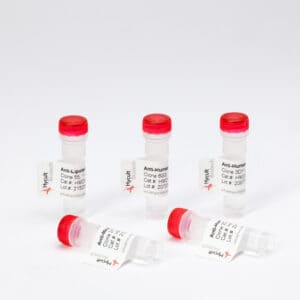MCL, Rat, mAb WEN42
€133.00 – €368.00
The monoclonal antibody WEN42 recognizes rat macrophage C-type lectin (MCL). C-type lectin receptors (CLRs) have recently been identified as a fourth family of pattern-recognition receptors for pathogen associated molecular patterns, following TLRs, Nod-like receptors and RIG-I-like receptors. MCL is a membrane surface receptor encoded by the Antigen Presenting Lectin-like gene Complex (APLEC).The complex consists of seven related C-type lectin receptor genes, namely, Dendritic Cell Activating Receptor (DCAR), Dendritic Cell Inhibitory Receptor 1, 2, 3 and 24 (DCIR), Macrophage C-type lectin (MCL) and Macrophage inducible C-type lectin (Mincle). MCL is a type II transmembrane protein with a single extracellular C-terminal C-type lectin-like domain. C-type lectins are functionally diverse. Human MCL is expressed on macrophages (synovial, peritoneal, and blood monocyte-derived), Langerhans cells and on neutrophils, monocytes and immature and mature DCs. In rats, expression of MCL has been detected on macrophages, neutrophils, DCs, B cells, and T cells. Their presence on the surface of immune cells and their potential for recognizing polysaccharide structures suggests a central role as pattern-recognition receptors (PRR) in the innate immune system. Despite the growing amount of data describing expression and function of the APLEC receptors, very little has been reported about MCL in general and the rat MCL in particular. Studies investigating the role of MCL has demonstrated that MCL is capable of inducing phagocytosis, cytokine production and oxidative burst, suggesting an activating role for this protein in the immune response. WEN42 does not bind to cells transfected with human MCL or with other APLEC receptors.
FC: Rat MCL is expressed on the extracellular domain of monocytes, macrophages and granulocytes (Ref.1).
FS: beads coated with anti-MCL antibody increased phagocytosis in the RMW cells (Ref. 1).
